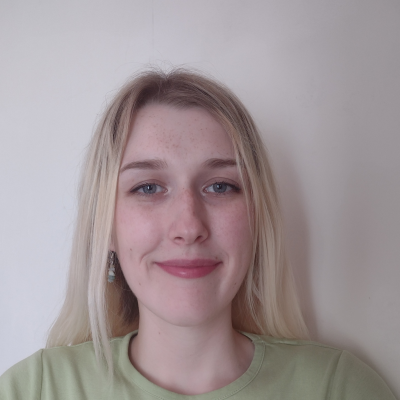The importance of emotional support for young people's health and wellbeing
15 June 2021

Working at the Health Foundation, it is easy to see almost everything through a health lens – from the macro to the micro conditions in which we live.
Like many of us in the past year, a worrying proportion of my free time has been spent watching TV. I recently saw my work reflected back at me in the documentary Three Identical Strangers, which follows Bobby, Eddy and David – three triplets separated at birth who, by coincidence, reconnected with each other aged 19.
Their unique story captured the attention of the media and the public. The triplets each grew up wrestling. They smoked the same cigarettes, had similar mannerisms and when they reunited, they responded to questions in unison. There was an immediate connection.
Even so, differences in personalities became apparent after years of growing up separately in different family dynamics. Bobby’s father, known affectionately as ‘Bubula’ by all three, was known to be incredibly warm and an anchor for the triplets. On the other hand, Eddy’s father was a strict disciplinarian, and reflected that ‘we [the family] didn’t tell our problems to one another’. Eddy sadly took his own life aged 33. According to his wife, Eddy felt he never fitted in with his adoptive family and struggled the most when the brothers began to drift apart.
It was later uncovered that the triplets had been secretly separated into different socioeconomic households and studied as part of a childhood development experiment (thankfully ethical research standards would make this impossible today). Family – siblings, adoptive families, wider networks of family – shaped their lives. Each struggled with mental health issues growing up, and I wondered how this could have been different if they had had one another to confide in.
Emotional support from family for young people is the focus of the Health Foundation’s open research call later this year. Our work on the Young people’s future health inquiry has helped us to understand the building blocks needed for a smooth transition into adulthood. As well as emotional support, the role of skills and qualifications, personal connections, and financial and practical support are all fundamental in shaping our health and prospects. The accumulation of these assets make it easier for some young people to create the building blocks which sustain health and wellbeing as adults.
This research phase of the Young people’s future health inquiry seeks to further explore the role of emotional support, through the families of young people aged 12–24. In our engagement work, young people would frequently make comments such as ‘my mum is my rock’, or ‘my parents don’t understand what it is like to grow up in this culture’. According to research using longitudinal data sets, conducted by the Association for Young People’s Health and University College London’s Institute of Child Health, emotional support was identified as an important building block of future health, helping and supporting those in good work and stable housing where it was present, as well as setting them up for good relationships in future.
In April 2021 we held a workshop with the young advisors to our inquiry, asking what came to mind when they thought about family and emotional support and what their priorities were. As expected, emotional support was important to all of them and came from a variety of sources – friends, family, faith and animals, for instance. The description of family as a ‘network’ of support that can be called upon during difficult times, no matter where they are, particularly resonated with me, as many of us have been unable to visit friends and family in person this past year.
But like other areas, family emotional support was influenced by external circumstances. We commissioned a scoping review from the Anna Freud Centre which showed that there is a lack of research into how emotional support enables young adults to achieve their life goals or better health outcomes. There is little research on the wider context surrounding families, which can positively or negatively affect the ability of families to support their young people. There is also little research into wider families and households – stepparents, grandparents, siblings – all of whom have an important role to play.
These gaps in the research have encouraged us to make this an area for an open call for research funding this year. We will invite researchers to apply for funding on the topic of young people and emotional support. We will fund academic researchers over a period of 2–3 years to look at a subject in depth.
This research will improve understanding of the nuances in how emotional support is provided and influenced by a variety of factors within the family and beyond. Thinking back to Bobby, Eddy and David, we want all young people to grow up with a secure foundation they can draw upon during difficult times.
Lucy Brinkley is the Healthy Lives Policy Intern at the Health Foundation.
Further reading
Work with us
We look for talented and passionate individuals as everyone at the Health Foundation has an important role to play.
View current vacanciesThe Q community
Q is an initiative connecting people with improvement expertise across the UK.
Find out more

